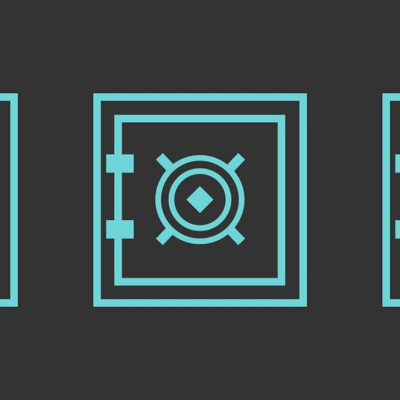Choosing a savings account depends on your situation and what matters to you, and there are several factors to weigh up in the process. This guide explains the different types of accounts to suit your savings needs.
Types of savings accounts
As well as finding the best interest rate, it’s important to choose an account that provides the right level of access. We explain the different types of savings accounts available and how you can access them, to help you decide what’s right for you.
Instant access savings accounts
Instant access savings accounts give you the flexibility to withdraw your money at any time without penalties. This makes them ideal for those looking to access their funds easily and frequently. The interest rates on instant access accounts are variable, so will change in line with various factors, including the latest Bank of England base rate, changes to other banks’ savings rates, and the cost of running their bank.
Notice savings accounts
Also known as limited access or restricted access accounts, notice savings accounts require you to notify your provider before withdrawing funds. The interest rate is often higher than an instant access account. And the longer you’re prepared to leave your cash untouched, the greater the return on your savings.
Fixed-term savings accounts
Also known as a fixed-term deposit or a fixed-term bond, fixed-term savings accounts offer a guaranteed interest rate for a set period. By agreeing to lock your cash away in a fixed-term account, you’ll usually benefit from a higher return on your savings. In exchange, you won’t be able to withdraw your funds before the end of the fixed-term.
Read our guide on the different types of savings accounts
Consider your financial goals
Whether you're saving for something in the near future or planning for the long term, let's explore what types of savings accounts best suits your needs.
You want to protect your savings in case the bank was to fail
The risk of losing savings is minimal, however in the unfortunate event that your bank was to go bust, any amount above £85,000 is at risk.
Some people spread their cash across a selection of banks to get FSCS protection and reduce the risk. You can gain protection from any bank authorised by the Prudential Regulation Authority (PRA) and Financial Conduct Authority (FCA).
You don’t want your interest rate to change
Banks may change your saving rate depending on their circumstances and it’s worth bearing in mind they can fall as well as rise.
Going for a fixed-term deposit is the best option to ensure your rate doesn’t drop. A fixed-term account of six months will lock in a rate for the whole time-period and give you peace of mind.
You want to grow your ‘rainy day’ fund
If there’s one thing many of us have learnt over the past few years, it’s that having a rainy-day savings fund is a smart idea. But rainy days, by their nature, are usually unexpected – so having the money within reach is necessary when considering a savings account.
Opting for an instant access account will allow you to withdraw your money immediately (without cost) to cover any urgent expenses. The trade off for accessible cash tends to be lower rates, but it beats earning nothing at all in a current account.
You've received a large sum of money
If you received a windfall or lump sum, chances are you’re not ready to spend it all right away. If you’re prepared to tie it up for six months to five years, a fixed-term account should pay you the highest interest. Generally, the longer the term, the more you’ll earn. But take note of the maximum deposit amounts as they vary.
You're saving for a wedding or house deposit
A notice account – sitting in between a fixed-term and instant access – will give you the flexibility to access your money sooner than a fixed-term, but at a better interest rate than a high street account. You won’t have to tie your money up for too long, but your rate could change before the notice period is over.
You're planning for retirement
The most popular way to save for retirement is with a pension, but it’s not the only way you can save for this long-term goal. Some savers also decide to open a tax-free ISA or a fixed-term account to give their cash a boost, particularly if they have a lump sum.
You may be able to lock up your money for years depending on when you retire. There are several choices of savings accounts that will offer competitive rates over terms of two, five and seven years.
You need to dip into your cash or withdraw it soon
If you want to access your money as and when you like, choosing an instant access or easy access account is a good option as it allows you to withdraw without a penalty. You might deposit some money in an instant access account when interest rates are rising, so you can easily switch accounts to better rates.
It’s possible to have multiple savings accounts at one time – think of them as different savings pots for different goals. By opening several accounts, it can help maximise interest, increase protection, and support your financial future.
Our cash deposit platform gives you access to lots of savings accounts with various banks, so you can move your money around easily without completing separate applications.
Frequently asked questions
Why should I open a savings account?
Opening a savings account can support your financial goals at different life stages. Perhaps you’re building an emergency fund as a safety net for unexpected expenses, such as home renovations or the loss of income. Or maybe you’re saving for a down payment on a house or your retirement nest egg.
Either way, by setting up one or more savings accounts separate to your current account, you can:
- Earn more interest on your cash
- Track your savings goals more easily
- Better protect your cash with the FSCS
- Be less tempted to dip into your savings
And the sooner you start saving, the more time your money has to grow.
What do I need to open a savings account?
When you open a savings account, there are some personal documents you’ll need to provide. Exactly what you’ll need will depend on the account and provider you choose. But most banks or building societies will ask for the following:
- Photo ID – such as your driver’s licence or passport
- Proof of address – such as a utility bill or bank statement




